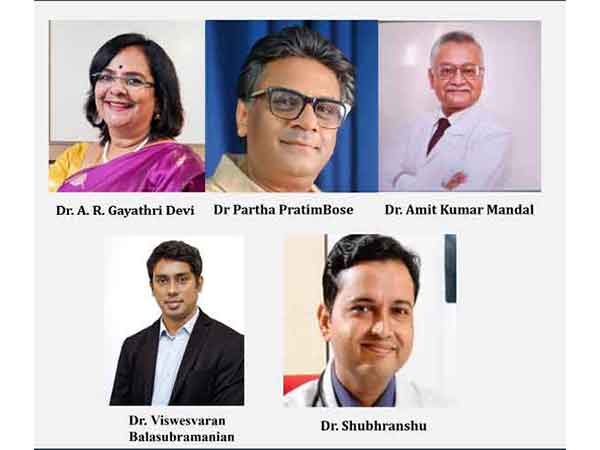Over 80 per cent of Indian Women Affected by Melasma and PIH, Experts Emphasize Data-Driven Solutions
Nov 11, 2024

Health Presso
New Delhi [India], November 11: Experts highlight that dermatologists are pioneering safe and innovative solutions in a world where approximately 40% of the population grapples with pigmentation issues such as hyperpigmentation, melasma, or dark spots. With a rising demand for longer-lasting results, the latest advancements in skincare technology are setting new standards.
India, in particular, faces significant challenges related to skin pigmentation disorders, especially among its diverse population. Conditions such as melasma and post-inflammatory hyperpigmentation (PIH) are notably prevalent, particularly among women. Melasma is the most common pigmentary disorder in India, affecting approximately 20-30% of women aged 40-65 years. Characterized by brown to grayish-brown macules on the face, melasma predominantly affects women, accounting for 90% of cases. Contributing factors include UV exposure, hormonal changes (such as during pregnancy or contraceptive use), and genetic predisposition. Post-inflammatory hyperpigmentation (PIH) arises following skin injuries or inflammation and is significantly prevalent among the Indian population. PIH often coexists with other hyperpigmentary disorders, contributing to the overall burden of pigmentation issues. A study involving 1,204 women across four Indian cities highlighted that over 80% exhibited skin color heterogeneity, with various forms of hyperpigmented spots being common.
Dr Hema Pant, Medical Director at Sculpt Aesthetic Clinic, emphasized, "Pigmentation transcends mere cosmetic concern; it's a profound skin issue impacting confidence, emotional well-being, and overall quality of life."
Thanks to cutting-edge developments, particularly in next-generation laser therapies, patients are experiencing unprecedented, reliable results. These non-invasive treatments are redefining pigmentation management by precisely targeting melanin accumulation, which significantly reduces recovery times and enhances treatment efficacy.
Recent skincare innovations are instilling renewed hope in patients. Leading the charge in pigmentation removal, advanced laser treatments and topical solutions are making significant strides. "For years, patients faced limited options, but today, we offer a comprehensive range of effective treatments," noted Dr Kritika Pandey, Senior Dermatologist, Gurgaon. She further added "Topicals like hydroquinone, retinoids, and vitamin C have proven immensely effective in reducing dark spots, evening skin tone, and preventing further discoloration. The real breakthrough lies in our ability to tailor treatment plans to individual skin needs. It's no longer a one-size-fits-all approach--each patient's skin type, pigmentation severity, and lifestyle are meticulously considered to ensure optimal results."
These medical advancements extend beyond aesthetics, addressing the profound emotional and psychological effects of pigmentation. Experts advocate for early consultations with certified dermatologists to receive personalized care. Procedures such as chemical peels and microdermabrasion are gaining traction for their exfoliating and rejuvenating capabilities, aiding patients in achieving a more even complexion.
"While pigmentation issues can be daunting, early intervention and appropriate treatments can drastically mitigate long-term effects," Dr Itishree Gupta, Senior Cosmetic Surgeon, Delhi emphasized. "We now have the means to address root causes, be it sun damage, post-inflammatory hyperpigmentation, or hormonal changes, offering solutions that are both safe and effective."
As awareness and education surrounding pigmentation disorders grow, and with ongoing advancements in dermatology, more patients are discovering sustainable solutions. Dermatologists worldwide remain optimistic that these state-of-the-art treatments will empower patients to achieve clearer, healthier skin and restore their confidence.
(ADVERTORIAL DISCLAIMER: The above press release has been provided by Health Presso. ANI will not be responsible in any way for the content of the same)

















